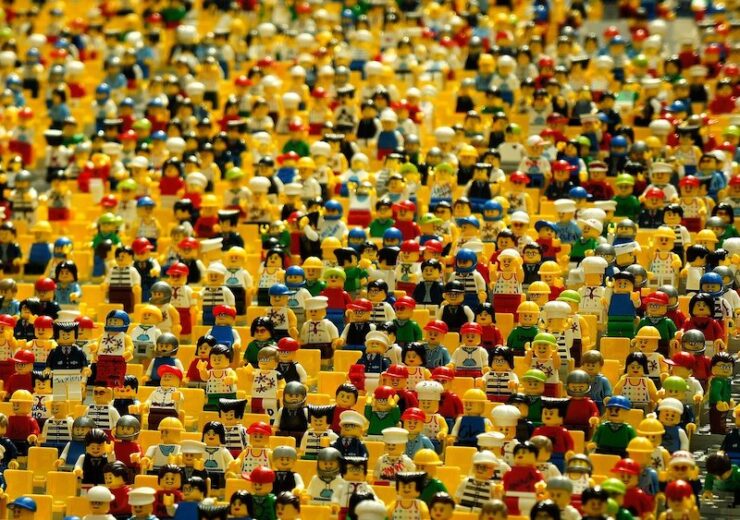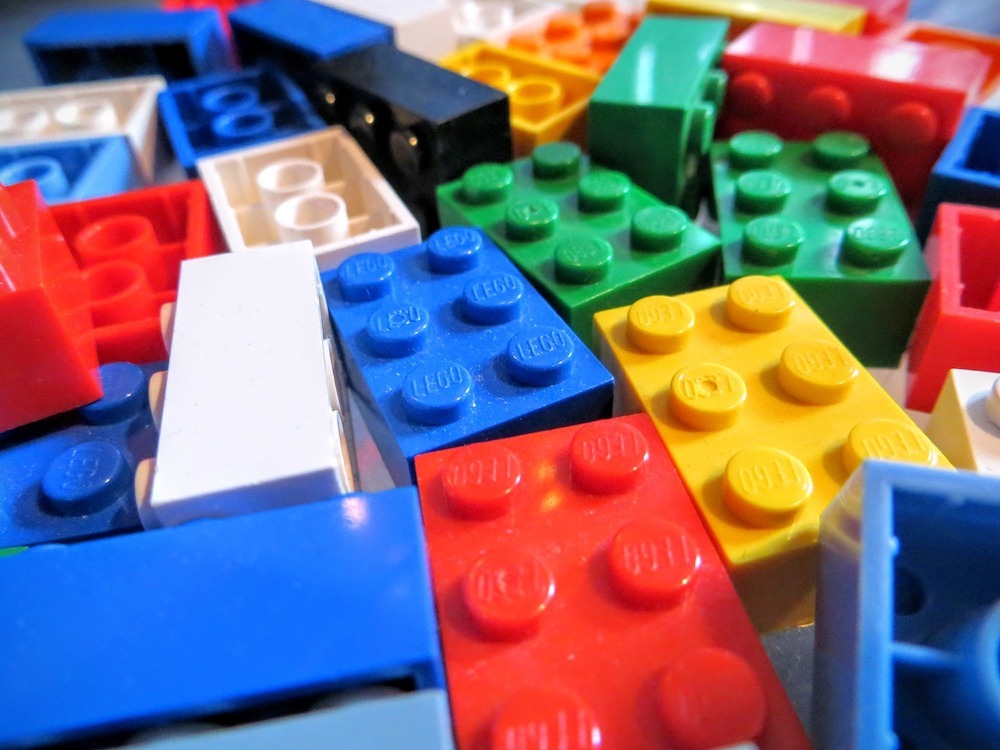Next year will see the Lego Group begin to trial the use paper bags in its boxes as a possible replacement for single-use plastic bags

Its estimated that Lego produces around 125 million Lego pieces a day (Credit: Pixabay)
The Lego Group has pledged to phase out single-use plastic bags from its products as part of plans to make all of its packaging sustainable by 2025.
It comes as part of the Danish giant’s commitment to invest up to $400m over the next three years to accelerate sustainability efforts.
Further investments will also be made in creating more sustainable products, achieving zero-waste and carbon-neutral operations, circularity and inspiring children to learn about sustainability through play.
Lego Group CEO Niels B Christiansen said: “We cannot lose sight of the fundamental challenges facing future generations.
“It’s critical we take urgent action now to care for the planet and future generations.
“As a company who looks to children as our role models, we are inspired by the millions of kids who have called for more urgent action on climate change.
“We believe they should have access to opportunities to develop the skills necessary to create a sustainable future.
“We will step up our efforts to use our resources, networks, expertise and platforms to make a positive difference.”
Lego to trial Forest Stewardship Council-certified papers bags from 2021
As part of the company’s move away from single-use plastic bags, Lego will trial the use of Forest Stewardship Council-certified recyclable paper bags from 2021.
Christiansen said: “We have received many letters from children about the environment asking us to remove single-use plastic packaging.
“We have been exploring alternatives for some time and the passion and ideas from children inspired us to begin to make the change.”
Lego has already tested several prototypes to replace single-use plastic bags in its boxes, with these made from a range of sustainable materials with hundreds of parents and children testing them.
Children particularly liked the paper bags being trialled next year as they were environmentally-friendly and easy to open.
Alongside developing and implementing sustainable materials, the up to $400m investment will focus on a range of social and environmental actions to inspire children through play, making business more circular and achieving carbon-neutral operations.
By 2022, the LEGO Group aims to reach eight million children around the world annually with activities promoting learning through play.
The company is also planning to launch programmes encouraging people to donate Lego bricks to children in need.
This will build upon Lego Replay, which was successfully trialled in the US in 2019 — with the scheme being rolled out in two more countries by the end of 2022.
The programme so far has seen bricks donated to more than 23,000 children across the US.

Lego will also continue to invest in and develop environmentally-friendly toys through its Sustainable Materials Programmes, which employs more than 150 experts to create sustainable products and packaging.
It is part of a commitment the group made in 2015, setting itself a target to make all its products from sustainable materials by 2030.
In order to achieve this, the firm will expand its use of bio-bricks — such as those made from sugar cane — which currently accounts for almost 2% of its element portfolio.
The firm says it will continue to research into new and more sustainable plastic from renewable and recycled sources.
As well as this, the company will join forces with research institutes and other companies — especially those developing new recycling and bio-based material production technologies — to identify materials that are as durable and high quality as those used today.
These planned investments include both the costs associated with the development of new materials and manufacturing equipment.
The Lego Group is also looking to improve how it handles waste and reduce its water consumption, with both moves designed to bring down the company’s overall operational impact on the environment.
Its part of the firm’s commitment to ensuring no waste is diverted to landfill by 2025 and cutting its water use by 10% by 2022.
Alongside this, the business will continue to work with organisations such as the Ellen MacArthur Foundation, the World Wildlife Fund, UNICEF and Save the Children to create the greatest impact.
Christiansen said: “At a time when the world is facing numerous challenges, companies must take actions to create a lasting positive impact on the environment and society.
“No one can do it alone. I urge companies, governments, parents, children and NGOs to continue to join forces to create a sustainable future for our children, the builders of tomorrow.”
